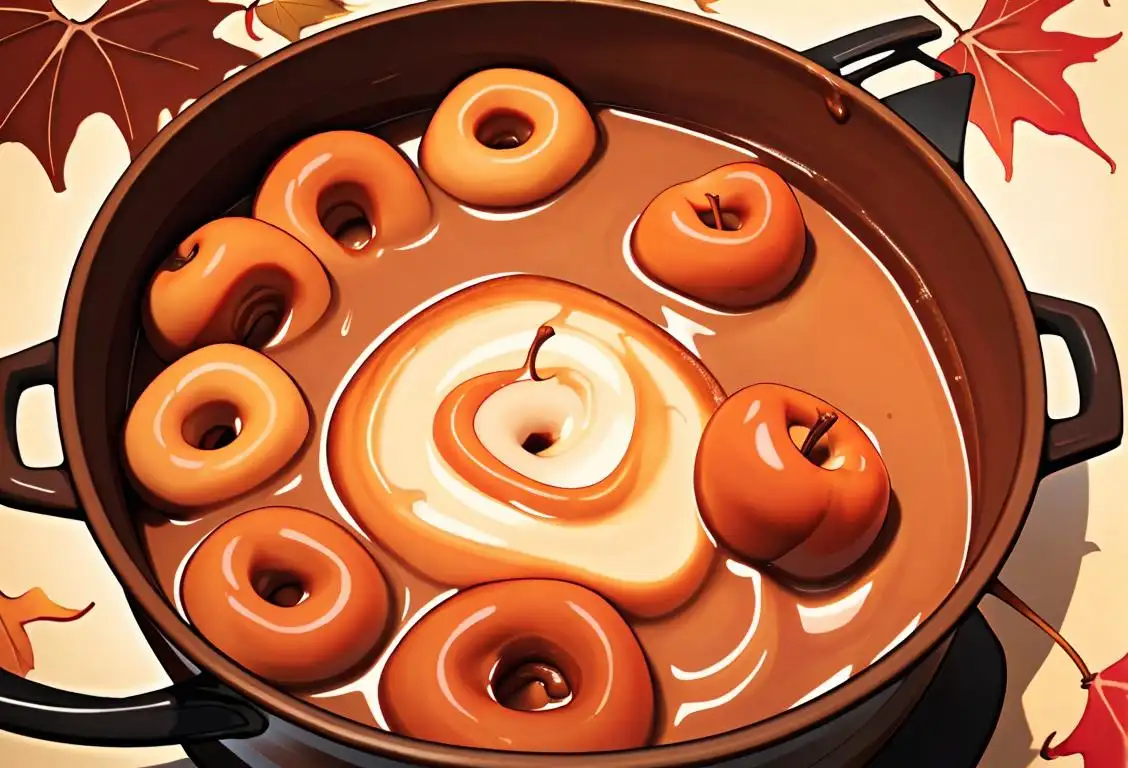National Chewing Gum Day

Ahem, Gather round everyone! Today, we're embarking on a minty fresh journey of discovery, unwrapping the sticky secrets of everyone's favourite mouth gymnastics exercise - Chewing Gum! Drum roll please... because you've just made a bubblelicious landing on the page of National Chewing Gum Day!
When is Chewing Gum Day?
It's national chewing gum day on the 30th September.
A history that sticks!
Chewing gum has a rich and sticky history (pun of course intended), and National Chewing Gum Day, widely celebrated on the 30th of September, has been leaving a lasting impression online; more exactly 2450 times in recent years!. Isn't that just amazing?
But when did this gum-tastic celebration begin?
Well, it's not entirely clear, much like the last piece of gum at the bottom of your handbag or pocket. But what we can tell you is that the sweetest-ever day got its biggest online shout-out on 30th September 2015. Talk about a gum-burst of popularity!
What's up with the gum?
Chewing gum started its global domination thousands of years ago - from the Greeks to the Mayans, all who fancied a chew now and then. But the version most similar to the one we stick to today? That blew in from the New World, when American inventor, Thomas Adams, in 1869 used chicle from the sapodilla tree to make a more resilient chewing gum. Thanks Thomas! We salute your ingenuity with every bubble we blow.
#MintyFreshCelebration
Today, gum enthusiasts across the globe use National Chewing Gum Day to pop, crackle and snap their gum in harmonious unity. Some even host gum-off competitions or try their hand at creating unique flavours. So why not join in? Blow a bubble, do a trick, or why not invent a fun new 'gum-vention' of your own? After all, this day really is about sticking together, in a gum kind of way.
History behind the term 'Chewing Gum'
1809
Chewing on tree resin
In 1809, the term 'chewing gum' as we know it today did not exist. However, the concept of chewing on substances for entertainment and oral hygiene dates back centuries. Many ancient civilizations, such as the Greeks, Mayans, and Native Americans, chewed on tree resin, also known as mastiche or chicle. They believed that chewing on tree resin had various health benefits, including freshening breath and aiding digestion.
1848
Modern chewing gum invented
The term 'chewing gum' was first coined in 1848 when Mexican physician, Dr. Thomas Adams, introduced modern chewing gum. Dr. Adams had been experimenting with chicle, a natural tree resin obtained from sapodilla trees. While originally attempting to use chicle as a substitute for rubber, he discovered its potential as a chewable substance. He eventually developed a commercial chewing gum called 'Adams New York Gum.' This marked the beginning of a new era for the term 'chewing gum.'
1869
First gum vending machine
The year 1869 witnessed a significant advancement in the popularity of chewing gum. The first-ever gum vending machine, named 'Adams' Tutti-Frutti,' was created by Thomas Adams. This innovative machine allowed customers to purchase gum conveniently, further increasing the accessibility and widespread consumption of chewing gum. The availability of gum through vending machines contributed to the term's growing recognition and cultural impact.
1871
Chewing gum patents
In 1871, the term 'chewing gum' gained official recognition with the grant of the first chewing gum patent. Adams received a patent for his gum manufacturing process, solidifying his contribution to the evolution of chewing gum. This marked an important milestone, as patents played a crucial role in protecting the manufacturing techniques and recipes associated with various gum brands. The issuance of patents helped establish legal ownership and control over the term 'chewing gum.'
1892
William Wrigley Jr. enters the gum industry
In 1892, the term 'chewing gum' experienced another significant development when William Wrigley Jr. entered the gum industry. Originally a soap salesman, Wrigley began offering free sticks of chewing gum as an incentive to customers who purchased his soap. The popularity of the chewing gum exceeded his soaps, leading Wrigley to focus solely on the gum business. His company, Wm. Wrigley Jr. Company, went on to become one of the most prominent chewing gum manufacturers, contributing to the widespread recognition and consumption of chewing gum.
Late 19th century
Flavored gum and bubble blowing
By the late 19th century, chewing gum had become a popular treat, particularly among children. Manufacturers began experimenting with various flavors to enhance the gum's taste. The introduction of flavors like spearmint and wintergreen led to a surge in its cultural presence. Moreover, during this time, people discovered the fun of blowing bubbles with chewing gum, a trend that has continued to this day. The ability to blow bubbles became synonymous with the enjoyment and playfulness associated with chewing gum.
20th century
Chewing gum goes global
Chewing gum grew in popularity during the 20th century and expanded its reach worldwide. Multiple companies emerged, offering a wide variety of gum brands and flavors. The term 'chewing gum' became an internationally recognized concept, solidifying its cultural impact. Today, chewing gum is consumed and enjoyed by millions of people globally, continuing its evolution as a widely recognized symbol of refreshment, oral hygiene, and simple pleasure.
Did you know?
Did you know, the largest bubble ever blown was 20 inches in diameter!? That's about the size of a basketball! Bubble-blowing champs, you've got your work cut out for you!Tagged
food fun celebration history chewinggumFirst identified
29th September 2015Most mentioned on
30th September 2015Total mentions
2450Other days
Chewing Gum Day
Swiss Day
Chili Day
Senior Citizens Day
Lasagna Day
Martini Day
Jelly Bean Day
Hot Chocolate Day
Vodka Day
Caramel Day








